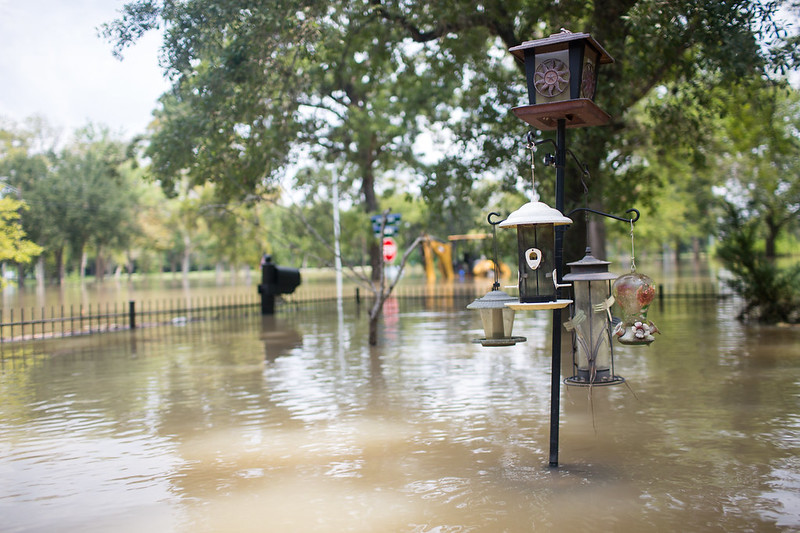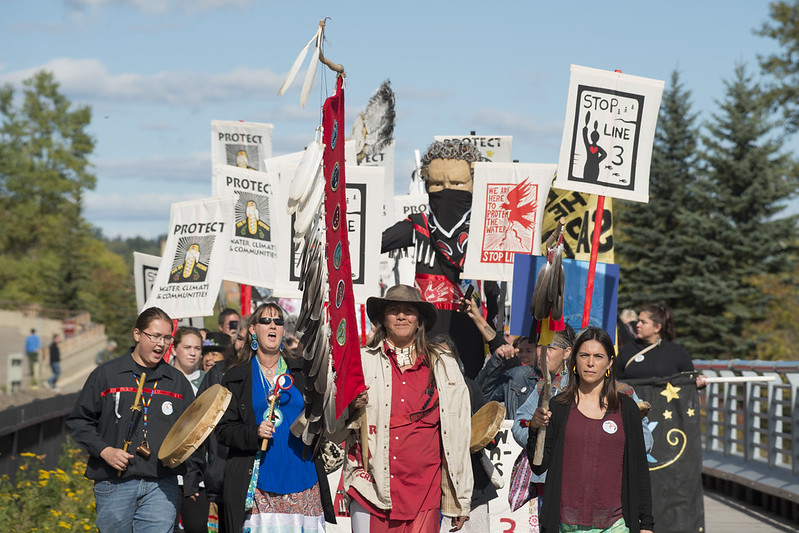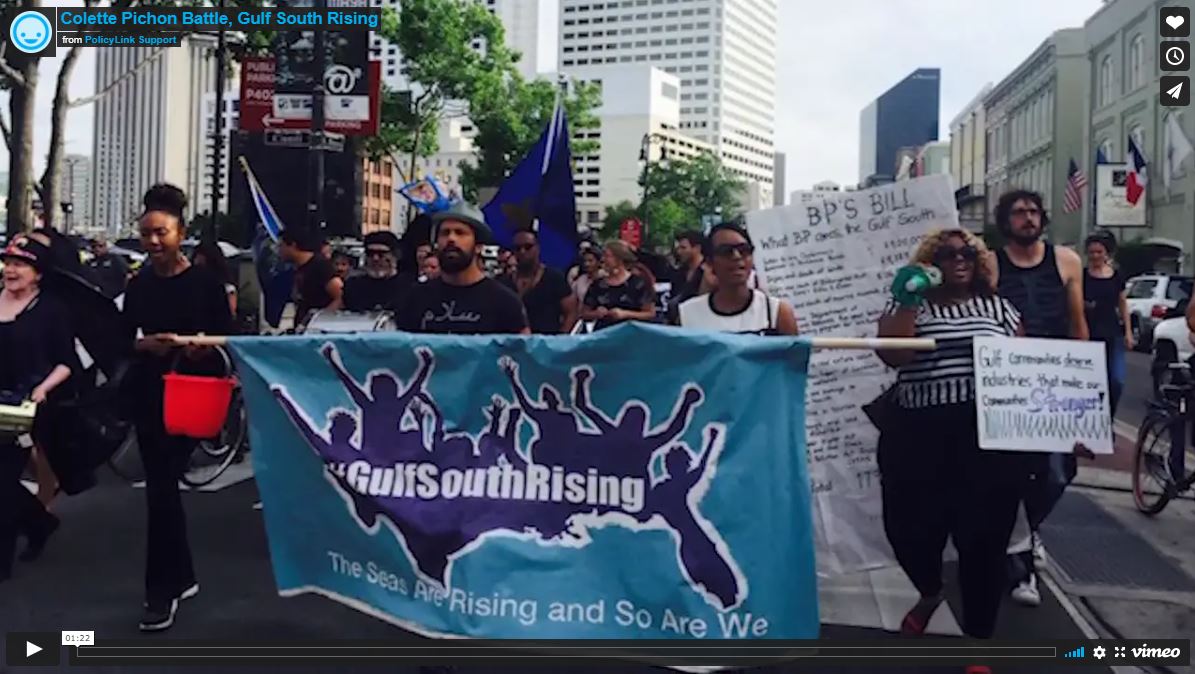Issue
A changing climate is impacting the water cycle in unprecedented ways, and we’re already living with the effects: prolonged droughts, chronic flooding, and more dangerous storms and wildfires. Warming temperatures dry soils, increase water evaporation, and reduce mountain snowpack, further threatening water supplies for millions of people and nature.

In 2017, Hurricane Harvey caused catastrophic flooding in and around Houston. On this street, high flood waters have nearly topped a bird feeder, fences, mailboxes, and a stop sign.
Some parts of the United States have remained in a multi-year drought, while others are showing signs of slipping back into one. The 2020 wildfire season broke records in California, Colorado, and Oregon, and the year marked the highest number of named storms in the Atlantic. For most people, climate change will be felt through water, whether it’s too little, too much, or unsafe. In addition to water pollution, many communities also increasingly face unaffordable water bills. The urgency to adapt and tackle the compounding climate and affordability emergencies encircles and underpins the work of community leaders and environmental and water justice advocates across the country.
Strategy
While water challenges, like those described above, have not always been addressed with a climate lens, advocates and communities are elevating these connections. Their work, from cities to farming communities to coastal neighborhoods, has secured nascent climate resilience and water equity wins, including new policies to address infrastructure deficits due to systemic inequities, public investments to secure the fundamental right to safe and affordable drinking water, and the stop to climate-damaging fossil fuel extraction that threatens water.
In recognition and celebration of the skill, strength, and creativity of local groups spearheading this intersectional work, PolicyLink and the Gulf Coast Center for Law & Policy have convened more than 90 people and organizations to grow the movement’s collaborative strategy, peer power, and policy change.
In 2020, as the Water Equity and Climate Resilience Caucus, the group engaged in ongoing peer learning and together outlined policy priorities and an action plan. Their local experiences, expertise, and relationships are also informing federal policy. Throughout the fall, Caucus members worked with Senate staff on water justice policies, advising on everything from water affordability in a public health crisis to disaster response systems. In December, now Senate Majority Leader Chuck Schumer announced updates to the Economic Justice Act. The bill proposes $435 billion in new federal funding to address systemic racism and chronic underinvestment in communities of color, including dozens of recommendations from the Caucus.
What’s Next
The Caucus continues to deepen its intersectional analysis on water and climate resilience. In 2021, the group is developing cultural resilience best practices, expanding members’ technical knowledge, and implementing its action plans for equitable Tribal, state, and federal investments in the water sector.

In 2019, hundreds of people gathered with signs and art on the shore of Gichi-gami (Lake Superior) to protest the proposed Enbridge Line 3 tar sands pipeline, Fibonacci Blue.
The group is also collaborating with hip hop artist, Benny Starr, and cultural activists, Mika Gadsden and Nana Fofie, to activate the creative and cultural power of the Caucus. They will be producing a podcast series, crafting a creative policy toolkit, and engaging Caucus members on tangible ways to advance water equity by leveraging arts and culture strategies. This work will be enhanced by a communications plan that will help lift up the voices of frontline leaders and highlight the narrative of water as a human right and cultural and spiritual resource.
